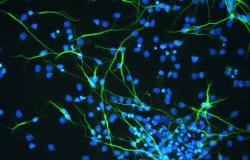Human nutrition Division : Impact and society

Innovation
The AlimH division collaborates with companies that are increasingly focusing on innovation to meet new consumer expectations in terms of health, authenticity, transparency and eating well. Nearly 90 research collaboration contracts were signed during the period 2016-2019.
The division's dynamism in the field of innovation is also reflected in the creation of six spin-offs based on the results obtained by our researchers.

Link
Clinic’n’Cell - Ex vivo clinical trials - a start-up for animal-free testing of health productsThe brainchild of INRAE and University of Clermont-Ferrand researchers, the start-up Clinic’n’Cell has developed an animal-free approach to evaluate the potential benefits of health products directly in humans. Hereafter is the interview with its three co-founders: Line Boutin, Fabien Wauquier, and Yohann Wittrant.
Support for public policies
Findings from the AimH division contribute to the elaboration of recommendations in the field of food/health and food safety. Researchers contribute to collective expert reports, for example on dietary behaviour in the French overseas departments and territories, animal products or the diets of senior citizens.
The division's researchers contributed to the work of the ANSES CEN on updating the PNNS dietary guidelines for children aged 0 to 3 years (June 2019) as well as the Libault report "Concertation Grand Age et autonomie" submitted to the government in March 2019 or the interministerial report on food education and youth, "Education alimentaire de la jeunesse", published in July 2018.
The nutritional situation and food consumption habits of the inhabitants of the French overseas territories pose very specific socio-economic and public health-related challenges. Apart from having to deal with a prevalence of overweight, obesity and diabetes more significant than that of the French mainland, these territories are also undergoing both rapid and profound demographic, nutritional and food-related transformations leading to changes in lifestyle which could result in insufficient physical activity as well as uneven food consumption. Within this context, the Directorate General of Health has charged the French Research Institute for Development (IRD) to conduct a multidisciplinary scientific expert overview of the nutritional situation and food consumption of the inhabitants of the French overseas territories in order eventually to lend a specific orientation to the National Nutritional Health Plan for these areas. The scope of the overview includes Guadeloupe, French Guiana, Martinique, Mayotte and La Réunion and the objective is to provide a picture of the differences and similarities between the various territories based on available data. To this end, the IRD has assembled a multidisciplinary committee of experts composed of epidemiologists, nutritionists, doctors specialising in public health issues, economists, endocrinologists, specialists in diabetic ailments and sociologists.

Link
Quality of foods of animal origin based on production and processing conditionsOn 29 May 2020, INRAE released the conclusions of a joint scientific assessment of the quality of foods of animal origin. Commissioned by the French Ministry of Agriculture and Food and FranceAgriMer (French authority for agriculture and sea products), the assessment looked at the properties that play a role in animal-based food quality and their key characteristics. It also examined how such properties vary due to livestock-farming conditions and processing procedures.
Citizen research
Citizen research promotes dialogue between science and society, while helping to raise awareness of how the scientific process works.
Several units of the AlimH division are part of this research-action programme, the expressed aim of which is to eat better and healthier by developing local supply chains. The aim is to improve the sustainability of food served and consumed in out-of-home catering: school canteens and company catering under concession, with a multi-scale assessment that looks at health (nutritional quality), environmental impact (carbon footprint), origin (type of circuit), economic questions (price), and cultural issues (acceptability to the consumer). The partnership includes, in addition to the researchers, an association specialising in food and sensory education (Eveil'O'Goût), with the support of the local health prevention branch (IREPS-BFC), the school catering service of the City of Dijon and the company Elior for access to several company restaurants in Dijon.
